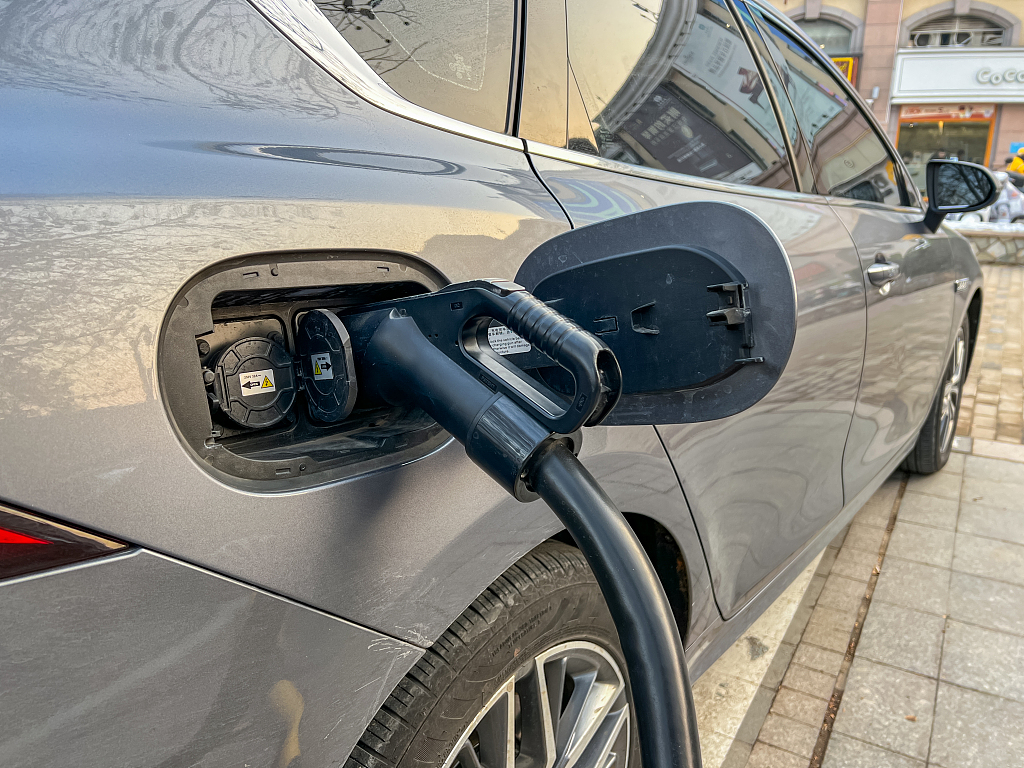
Owners of electric vehicles have complained on social media about challenges heading home during the Spring Festival travel rush as they had to worry about finding charging stations and charging their cars multiple times amid traffic congestion and freezing temperatures.
The hashtag “Charging seven times for a 1,800-kilometer journey” has trended on Douyin, with netizens sharing their difficulties finding charging stations.
The original poster, surnamed Fu, drove from Hangzhou, Zhejiang province, to Shenyang in Liaoning province on Jan 28 and spent more than eight hours charging her car seven times.
As they were heading north and with temperatures dropping, they turned on the seat heating and air conditioning, and the battery drained quickly, she said.
Meanwhile, some of the chargers did not work, and one time the car could only have driven nine more kilometers by the time they arrived at a charging station, she said.
On the Xiaohongshu social media platform, EV drivers also shared their experience of charging stations being too crowded and people having to wait for hours, while others had to leave the highway to find charging stations in urban areas.
Chen Yuting, who drove an EV from Beijing to Yichang, Hubei province, on Jan 29, said she experienced anxiety along the way.
“I worried about the battery constantly,” she said. “The air conditioning had to keep working as the temperature was low and I charged my car seven times for the 1,300-km journey, even though the car promised it could run 400 km per charge.”
Meanwhile, EV drivers have also taken issue with the great difficulty in leaving the island province of Hainan via ferry, with all tickets being sold until March.
The province has limited the number of EVs to 10 percent of the total on every regular ferry service due to safety concerns over lithium batteries.
To cope with the demand, Haikou”s Xinhai Port has promised to open special ferries for EV cars, according to China National Radio.
According to the National Development and Reform Commission, China produced 9.58 million new energy vehicles and almost 9.5 million such vehicles were sold in the country last year, both ranking top in the world for a ninth consecutive year.
The country had built almost 8.6 million charging facilities by the end of last year, also ranking No 1, the NDRC said.
Lu Fang, senior engineer at the School of Traffic and Transportation at Beijing Jiaotong University, said the NEV market has witnessed robust expansion in China thanks to the nation’s push for green development and its efforts to alleviate its dependence on oil imports.
Lu said complaints about a lack of infrastructure during the Spring Festival travel rush were not limited to NEVs as the scale of travel has been unprecedented.
“It is unnecessary to build so many charging stations to cope with such extreme demand, as most of them will go idle during normal times,” he said. “However, what we are now witnessing is growing pains and as more people have chosen to switch to EV cars, the infrastructure building will also keep up.”
Wang Xianyou, a professor at the College of Chemistry at Xiangtan University, said that because lithium batteries become less effective during low temperatures, the anxiety over charging intensifies.
However, there have been great efforts in development and research to improve the efficiency and safety of EV batteries, and with future technological breakthroughs in batteries and enhancements in the building of charging facilities, the switch to EV cars will continue, he added.
[ad_2]
Source link




